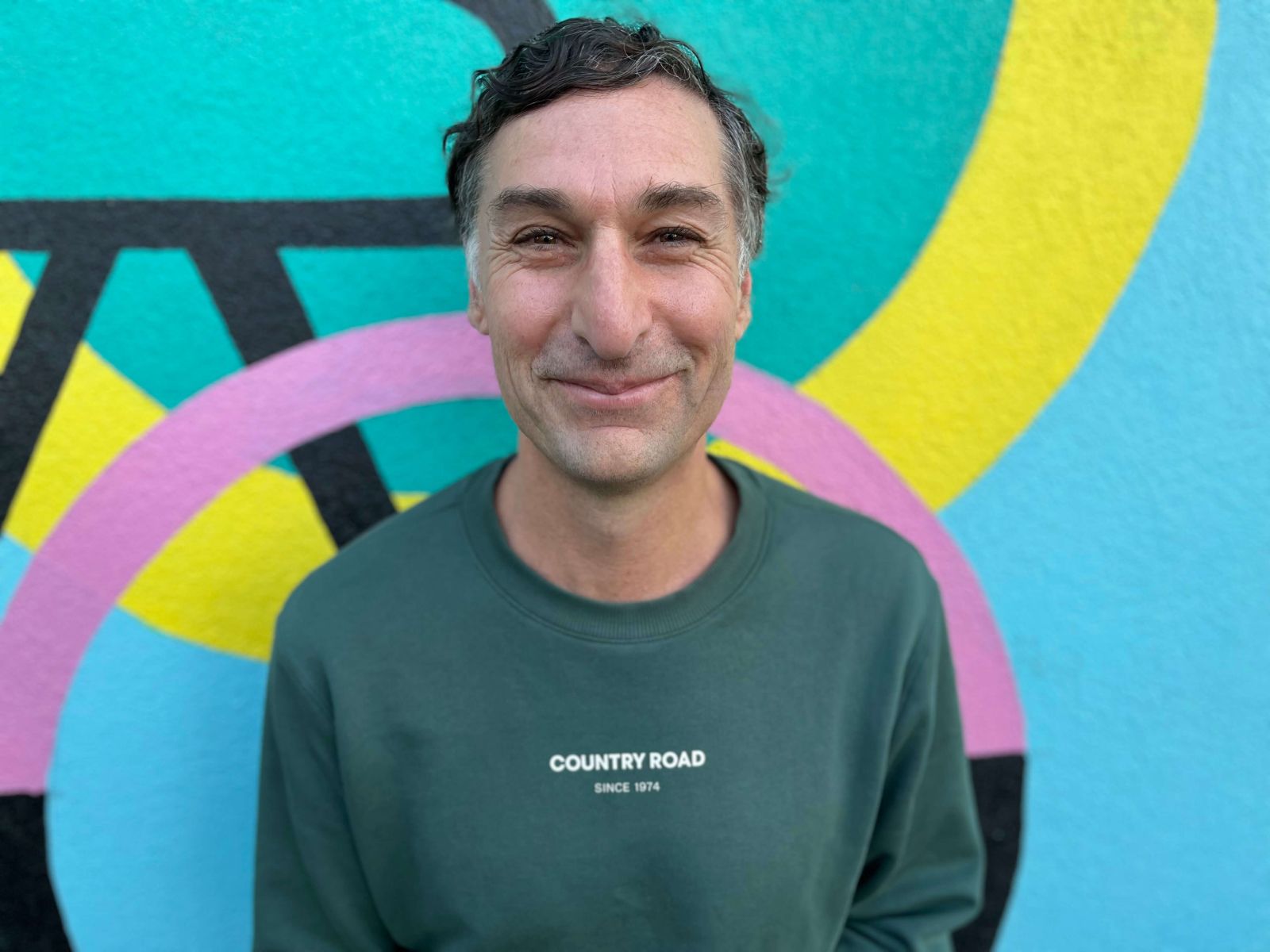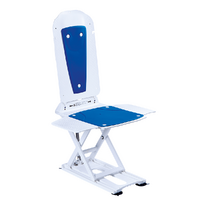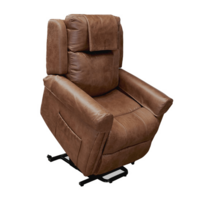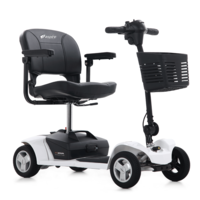A day in the life of physiotherapist Jimmy Goulis: balancing hospital emergency and private practice

As one of Australia’s largest healthcare equipment and service providers, we know that the strength of our business comes from the relationships we have developed over time.
We are only able to provide the quality healthcare equipment and services thanks to the support of the many excellent individuals who work across the hospital, residential aged care, home and community care and rehabilitation sectors.
This month, we spoke with physiotherapist Jimmy Goulis about his experience balancing private practice along with working in Melbourne’s top emergency rooms, and what a typical day looks like for him.
How long have you been working as a physiotherapist?
I’ve been working as a physio for 23 years now. I graduated from Sydney Uni in 2000 and, after working briefly on the Central Coast in NSW, I moved to the UK to work for seven years. That included a range of jobs from the NHS to the military. I even volunteered at the Athens Olympics, which was a cool experience.
After that I found myself in Melbourne. I spent a few years getting a Masters in musculoskeletal physio and then took on some advanced practice roles in the public hospital system.
What does your role in the public hospital system look like?
It’s taking on some of what traditionally a doctor would do, reviewing patients after something like a total hip or total knee replacement.
What we found was a lot of patients would do quite well in recovery. So why take up the time of an orthopaedic surgeon, when a physiotherapist is well equipped to see whether a patient’s recovery is on track?
It’s a collaborative role. The orthopaedic surgeon is right around the corner if we need them, but it frees them up from these kinds of routine checks.
The other advanced practice role I’ve done is in orthopaedic screening clinics. In the public system, a lot of the people referred to the orthopaedic department don’t want surgery. So instead of sitting on a waiting list for two or three years, physiotherapists will screen those referrals and assess people to see if there are alternative treatments. We can then make collaborative decisions on next steps.
How do you balance your private practice and hospital roles?
At the moment, I work two days a week in emergency. And then on the other days I have my private practice.
Private practice can feel pretty relaxing after an emergency shift. My private clients usually have simpler presentations, whereas someone will come into emergency with really mixed symptoms. It can be more stressful because a sore, swollen ankle could be something sinister like an infection of gout. You learn to be a bit broader as a physio, and I think it complements what I do in private practice.
For example, I had a patient the other day who came to my private practice with pretty severe shoulder pain having fallen off a bike. I pretty much went into emergency mode and surmised that he likely had a fracture. So I sent him to the nearest emergency department where it turned out he did have a fracture.
I think those skills I picked up in an emergency really enhance my knowledge and ability to work in the private sector and know when to escalate. It's quite satisfying to broaden your skills and bring some of those skills you learn to private practice.
What do you love most about your career as a physiotherapist?
I really love the constant learning. It’s like how as a kid I would look up medical dictionaries for different diagnoses.
As a junior you think you know a lot. But as you get older and more experienced, you realise how even with all your knowledge, how little you know, and how much more there is to know.
I'm always the one that thinks it could be this, but there could be some other things going on, too. Let's be really broad without thinking. I think it's only a stagnant career once you stop learning. And I feel like I've just persistently chosen roles that put me outside my comfort zone a little bit.
Can you tell me about what a typical day looks like?
A typical day in private practice starts around 10am. I generally have three or four patients, and then a break. And then in the afternoon, I’ll see a couple more patients and then spend time on admin as a business owner.
The workload fluctuates wildly in private practice. With online bookings now, you could have an empty diary going to bed and then wake up and there's three phone calls and two online bookings. So suddenly you've got five patients in a row.
So what sort of changes have you seen in the industry in your time?
I think the pandemic really shifted everything in health care, which is generally quite resistant to change. What really accelerated this was the learnings from the pandemic that you don't always have to be in the office.
The transition to utilise technology in healthcare is a really big shift. I've noticed everyone from managers to therapists being able to work from home. We’re now able to conduct consults via Zoom and finding there is a lot that can be achieved even if the patient's not in your room.
And what advances do you think are coming for the industry?
I think probably the most exciting thing is building on that advanced practice work, where physiotherapists work alongside doctors within hospitals. With the realisation that GPs can’t do everything, I think there’s a place for physios and nurse practitioners to be involved in primary care.
An example of this is, in emergency I'm able to order x-rays and talk directly with doctors about what the patient needs. I can't independently prescribe medications but I still can lead the conversation and discuss that.
Whereas to contrast that in my private work, I can't do any of that. I can't order an x-ray, even if I suspect a fracture. So that patient needs to go to their GP to request an x-ray. Even things like referring to specialties like orthopaedics – I do that routinely in emergency, but I can't directly refer to orthopaedics in private practice.
I think it's a system ripe for change where we think about what's best for the patient, and broaden the thinking around who can refer for x-rays, who can refer for orthopaedics and things like that.
Where do healthcare products fit into this patient care?
A well stocked emergency department makes the patient journey so much better. Having things like gait aids, shower chairs and those types of products helps with getting people home and out of the emergency department. When we have those supplies to provide it means they're going to be able to manage and be safe at home. You know, it's just such an important part of the picture.



























